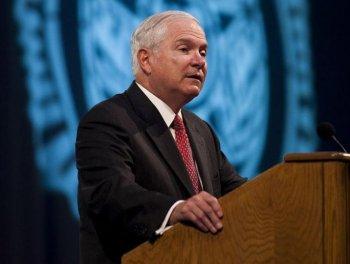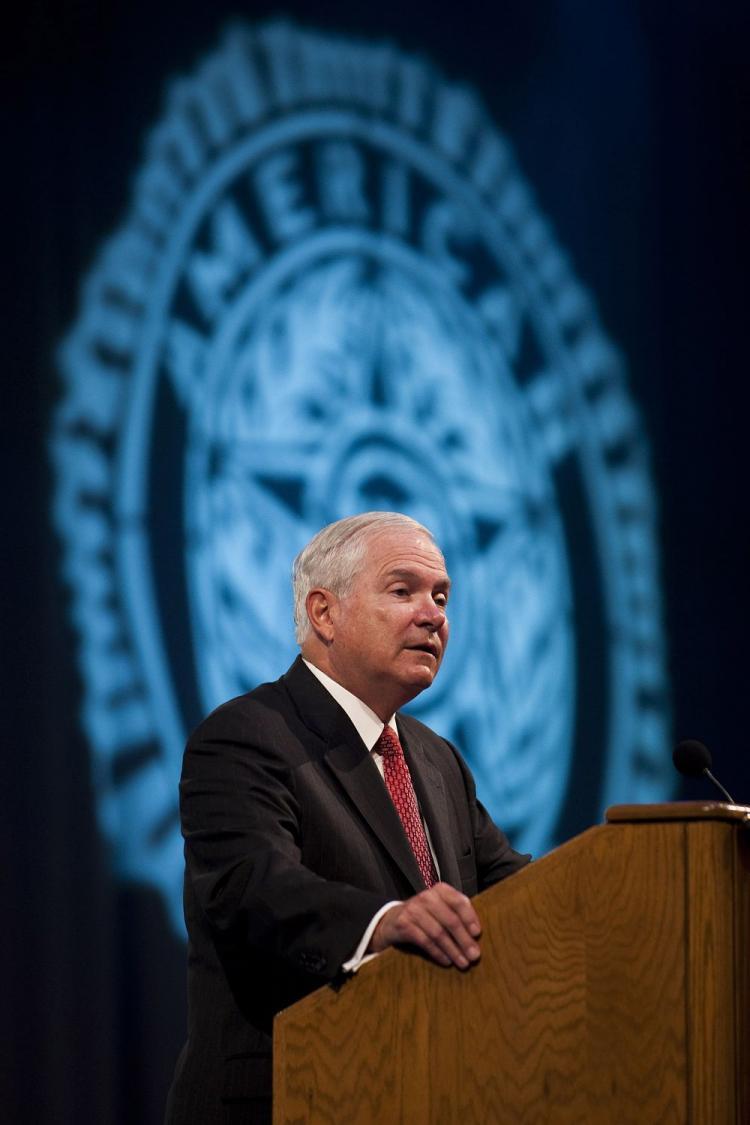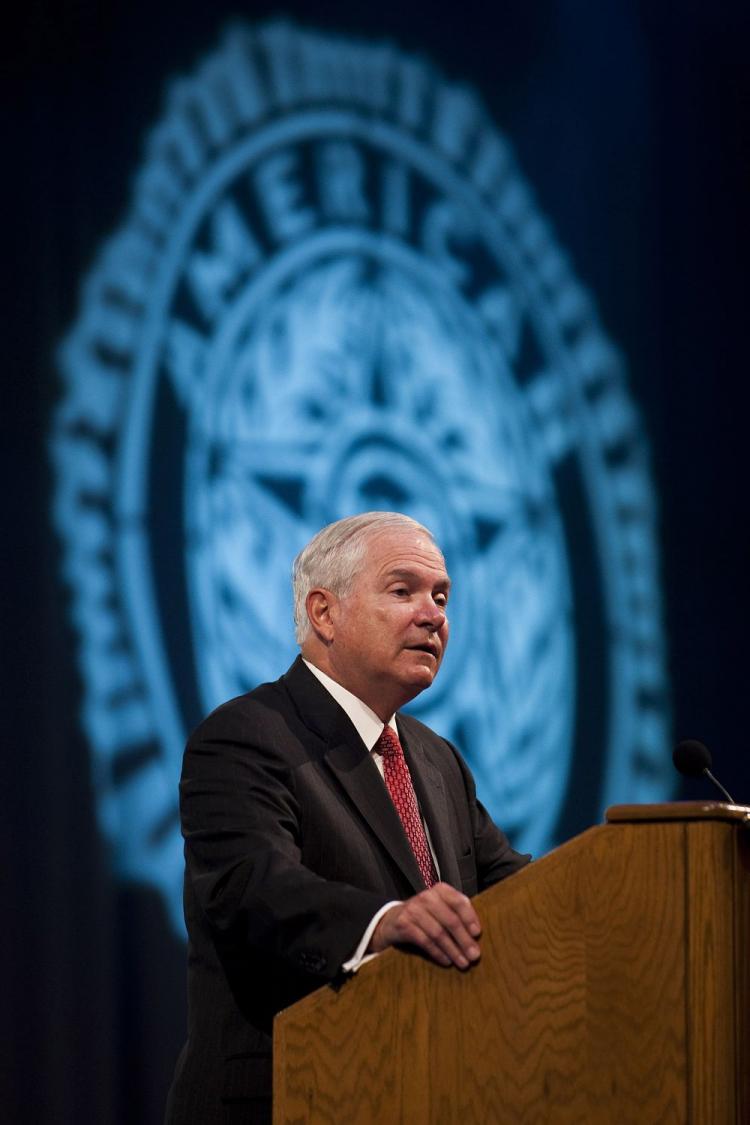All-Volunteer Military Placing Strain on Troops and Families
Defense Secretary Gates explained that although successful, all-volunteer military not meant for forms of war U.S. currently faces.

Secretary of Defense Robert Gates speaks at the American Legion Conference Aug. 31, 2010 in Milwaukee, Wisc. Secretary Gates, himself, acknowledged that going back to compulsory service, in addition to being politically impossible, is highly impractical. Jim Watson-Pool/Getty Images
|Updated:
Joshua Philipp is senior investigative reporter and host of “Crossroads” at The Epoch Times. As an award-winning journalist and documentary filmmaker, his works include “The Real Story of January 6” (2022), “The Final War: The 100 Year Plot to Defeat America” (2022), and “Tracking Down the Origin of Wuhan Coronavirus” (2020).
Author’s Selected Articles






